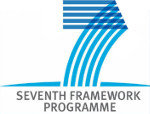Handling variability and incompleteness of biological data by flexible nets: a case study for Wilson disease
Júlvez, J. (Universidad de Zaragoza) ; Dikicioglu, D. ; Oliver, S.G.
Resumen: Mathematical models that combine predictive accuracy with explanatory power are central to the progress of systems and synthetic biology, but the heterogeneity and incompleteness of biological data impede our ability to construct such models. Furthermore, the robustness displayed by many biological systems means that they have the flexibility to operate under a range of physiological conditions and this is difficult for many modeling formalisms to handle. Flexible nets (FNs) address these challenges and represent a paradigm shift in model-based analysis of biological systems. FNs can: (i) handle uncertainties, ranges and missing information in concentrations, stoichiometry, network topology, and transition rates without having to resort to statistical approaches; (ii) accommodate different types of data in a unified model that integrates various cellular mechanisms; and (iii) be employed for system optimization and model predictive control. We present FNs and illustrate their capabilities by modeling a well-established system, the dynamics of glucose consumption by a microbial population. We further demonstrate the ability of FNs to take control actions in response to genetic or metabolic perturbations. Having bench-marked the system, we then construct the first quantitative model for Wilson disease—a rare genetic disorder that impairs copper utilization in the liver. We used this model to investigate the feasibility of using vitamin E supplementation therapy for symptomatic improvement. Our results indicate that hepatocytic inflammation caused by copper accumulation was not aggravated by limitations on endogenous antioxidant supplies, which means that treating patients with antioxidants is unlikely to be effective.
Idioma: Inglés
DOI: 10.1038/s41540-017-0044-x
Año: 2018
Publicado en: npj Systems Biology and Applications 4, 1 (2018), 7 [12 pp]
ISSN: 2056-7189
Financiación: info:eu-repo/grantAgreement/EC/FP7/289126/EU/BIO knowLEDGe Extractor and Modeller for Protein Production/BIOLEDGE
Financiación: info:eu-repo/grantAgreement/EC/FP7/623995/EU/Protein Synthesis Control by Means of Formal Models/FORMALBIO
Tipo y forma: Artículo (Versión definitiva)
Área (Departamento): Área Lenguajes y Sistemas Inf. (Dpto. Informát.Ingenie.Sistms.)
 Debe reconocer adecuadamente la autoría, proporcionar un enlace a la licencia e indicar si se han realizado cambios. Puede hacerlo de cualquier manera razonable, pero no de una manera que sugiera que tiene el apoyo del licenciador o lo recibe por el uso que hace.
Debe reconocer adecuadamente la autoría, proporcionar un enlace a la licencia e indicar si se han realizado cambios. Puede hacerlo de cualquier manera razonable, pero no de una manera que sugiera que tiene el apoyo del licenciador o lo recibe por el uso que hace.
Exportado de SIDERAL (2019-05-29-11:44:43)
Visitas y descargas
Idioma: Inglés
DOI: 10.1038/s41540-017-0044-x
Año: 2018
Publicado en: npj Systems Biology and Applications 4, 1 (2018), 7 [12 pp]
ISSN: 2056-7189
Financiación: info:eu-repo/grantAgreement/EC/FP7/289126/EU/BIO knowLEDGe Extractor and Modeller for Protein Production/BIOLEDGE
Financiación: info:eu-repo/grantAgreement/EC/FP7/623995/EU/Protein Synthesis Control by Means of Formal Models/FORMALBIO
Tipo y forma: Artículo (Versión definitiva)
Área (Departamento): Área Lenguajes y Sistemas Inf. (Dpto. Informát.Ingenie.Sistms.)
Exportado de SIDERAL (2019-05-29-11:44:43)
Enlace permanente:
Visitas y descargas
Este artículo se encuentra en las siguientes colecciones:
Artículos > Artículos por área > Lenguajes y Sistemas Informáticos
Registro creado el 2018-10-18, última modificación el 2019-05-29
